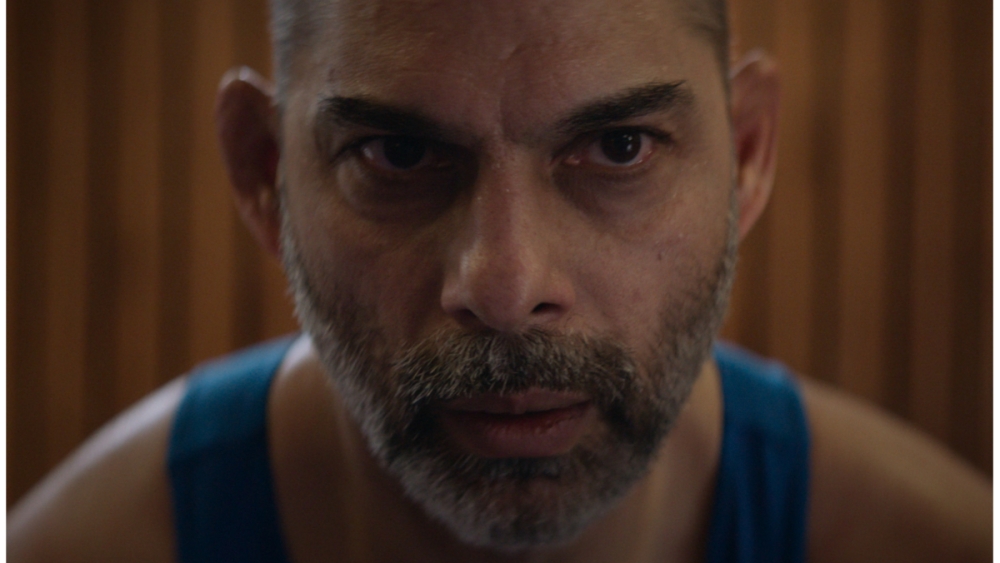
It’s striking how often the word “removal” comes up in various governments’ official policies regarding refugees and asylum seekers — a pointedly chosen term that conjures images of inanimate refuse or clutter awaiting collection, rather than human lives in desperate limbo. Fail to make your case to officials and you’ll be “removed,” a near-literally humanizing threat that hangs over Milad Alami’s tense, bristling social thriller “Opponent” like a pounding migraine. Following an Iranian wrestler and father whose urgent reasons for fleeing his homeland emerge aren’t entirely what he claims them to be, this is a tightly wound affair that unravels an obscured past and an uncertain future neatly in tandem. Alami maintains suspense at both ends of his narrative without making a blank cypher of his protagonist, played with seething specificity by an electrifying Payman Maadi.
That galvanizing lead performance — by an actor who hasn’t attained quite the crossover stardom he deserves following prominent turns in Asghar Farhadi’s “A Separation” and the Kristen Stewart vehicle “Camp X-Ray” — is the chief selling point of “Opponent,” a low-key but sharply assembled Berlinale premiere that makes good on the cool promise of Alami’s 2018 debut “The Charmer.” That film, another slow-burning tension exercise built around immigrant anxiety in Scandinavia — home turf for the Iranian-born, Swedish-raised, Danish-based helmer — was a festival hit that managed a fair spread of global arthouse distribution, including a Stateside release; taking all its predecessor’s restrained virtues up a notch, “Opponent” should build on that success.
It begins in a frenzied, scuffling state of panic, seizing viewers’ attention with a blank screen over the sound of bodies in slamming conflict. Iman (Maadi), dressed in a singlet, is shown running frantically from the gym where he and fellow Iranian wrestling team members have been training, with police in tow. Obstructed by another wrestler, he beats the other man vengefully to a pulp. It’s a stark, grabby prologue that will gradually be set in context; Alami’s choice of introductory onscreen quote by the queer Black writer Audre Lorde (“My silences had not protected me. Your silence will not protect you”) offers a clue at multiple textual levels.
First, however, we drift to the snowbound, wolf-patrolled landscape of northern Sweden, closing to the Finnish border. There, some time later, we find Iman, his wife Maryam (Marall Nasiri) and their two daughters living in no-frills refugee accommodation. Iman ekes out a living delivering pizzas by snowmobile, bringing any leftover orders home to his family for dinner — “Pizza again?” the girls sigh, in a rare complaint for their age group — while awaiting a verdict from the Swedish authorities on the family’s asylum application. In the meantime, they don’t get too comfortable, shepherded as they are from one cramped apartment to another as other refugees come and go. Alami vividly evokes the exhaustion of perennially temporary living, where even the family’s most helpful aides treat them less like people than problems to be solved.
Having been turned down for asylum before, Iman and the newly pregnant Maryam have launched an appeal, hoping her condition will help their cause. Their official line is that Iman was outed by a teammate as a critic of the Iranian regime, placing his life in danger on home soil, though that’s not entirely the truth. An alternative tale begins to emerge when our man is encouraged, against the wishes of Maryam, to join Sweden’s national wrestling team to solidify his case to remain in the country. Thus embedded, he strikes up a connection with strapping local teammate Thomas (Björn Elgerd), which soon reveals itself to be more than fraternal in nature.
As our view of Iman as a dedicated family man tilts into something more compromised, his air of unsettled aggression and volatile insecurity comes crisply into focus: Maadi’s extraordinary hair-trigger performance patiently outlines a man who was displaced within himself long before he was thrust into the confusion of refugee identity. He’s fiercely matched by Nasiri, quieter but no less suffused with rage as a knowing, watchful woman weary of her own silence, resentful of the wifely role she must play for her husband and the authorities alike.
Alami’s smart screenplay keeps simmering toward a roaring confrontation between these two mutual pretenders, but never quite boils over; indeed, much of “Opponent” plays out like a wrestling match, with principals grappling for an advantage, often blocking and locking each other’s movements. The filmmaking, accordingly, opts for suggestive subtlety over explosive flash: Sebastian Winterø’s brisk, frosty lensing heats up several degrees when bodies are in taut proximity to one another, while Olivia Neergaard-Holm’s editing tracks quickening internal urges against the oppressive slowness of days in refugee purgatory. Catharsis is elusive as the film works toward a conclusion that has impact but no finality, with Iman still mired in cautious, unprotective silence, his toughest opponent still inside him.













